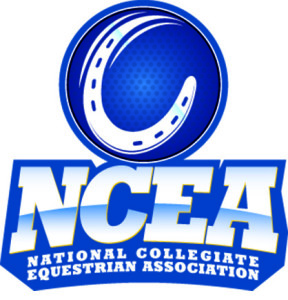National Advisory Board Established to Advocate for NCAA Equestrian
PHJ press release by: Kelsey Ritchie
Since the National Collegiate Athletic Association Committee on Women’s Athletics recommended the removal of equestrian from the list of emerging sports in October 2014, the National Collegiate Equestrian Association has been fighting to maintain its position in the NCAA structure. NCEA Executive Director Leah Fiorentino, Ph.D., who took office in January 2015, recently appointed a National Advisory Board to work toward establishing equestrian as the first non-revenue-earning financially independent NCAA sport.
The National Advisory Board, established in March 2015, is comprised of liaisons from NCEA university programs and “at-large” members from corporate entities and equine industry associations, including APHA. The NAB is committed to building financial support for the sport as well as raising awareness of the benefits of maintaining and growing equestrian teams at colleges across the country.
“The board is an incredible collection of positive energy and it has already been of great value to the NCEA structure,” Leah said. “This is by far the most exciting group I have ever been a part of, and I am very optimistic about the success of their plans.”
Leah says in the two months NAB has been in existence, the board has outlined several main issues and developed working teams to strategize solutions. These main issues include strengthening ties with professional equestrian associations; fundraising to support new programs and maintain current NCEA programs; increasing communication, media and advocacy campaigns; building relationships within the equine industry; and brainstorming new initiatives and ideas.
Kelly Chapman, NAB co-chairman and the board’s APHA and American Quarter Horse Association liaison, says these goals are achievable because of the cooperation and commitment of the board.
“Our goals as the NAB are very focused,” Kelly said. “We believe this sport can be the first non-revenue self-sustaining sport in the NCAA structure. To do that, we are stabilizing the NCEA operations through the development of an endowment, securing existing Women’s Equestrian programs and expanding the sport to additional schools.”
Active in combatting the recommendation for removal, Kelly serves as the voice between NAB and the equine industry.
“Currently, the most challenging part of my role is to educate people in our industry about the status of Women’s Equestrian as an NCAA sport,” she said. “Daily, people tell me at shows or events that ‘Women’s Equestrian is done,’ but this is far from the truth. The future is very bright.”
The CWA recommendation for removal was based on the NCAA statute that requires an emerging sport be sponsored by 40 different universities within 10 years of existence. Currently, only 23 universities offer women’s equestrian programs after 13 years.
“The NCAA has restructured and a newly formed committee will review the recommendation,” Leah said. “We are cautiously very optimistic about the review of the recommendation and look forward to working with the NCAA to further expand the sport.”
Leah developed three goals early in her term to gain sustainability for the NCEA: reach out to equestrian organizations’ leadership, support professionals at universities currently sponsoring NCEA programs and develop seed grant programs for new programs at other universities, and engage with other stake holders such as sponsors and the media.
“Looking forward, our current plan is to work with the NCAA for a positive resolution of the CWA recommendation,” she said. “We believe there are several positive outcomes as a result of the situation, and we look forward to being a part of new solutions.”











